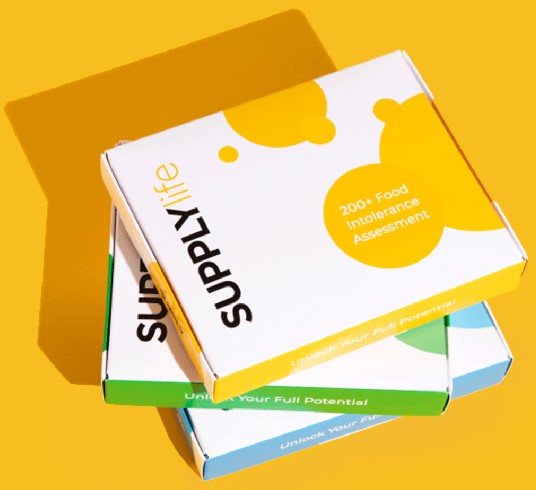Do you suspect that certain foods are causing you discomfort or unwanted symptoms? Keeping a food diary can be your first step in identifying potential food intolerances. In this guide, we'll walk you through the process of maintaining a food diary, recognising common intolerance-related ailments, and how a home food intolerance test from Supply Life can provide clarity and solutions.
Keeping a Food Diary
Start a Detailed Diary
Record everything you eat and drink, including portion sizes and cooking methods. Note the time of each meal and any snacks.
Document Symptoms
Keep track of any symptoms or discomfort you experience, such as bloating, gas, diarrhoea, or skin issues. Include the date and time when symptoms occur.
Be Specific
Describe your symptoms in detail, including their intensity and duration. Note any other factors like stress or physical activity that may influence your symptoms.
Common Ailments Related to Food Intolerance
- Bloating and Gas: Feeling excessively full or experiencing gas after meals can indicate intolerance.
- Diarrhoea or Constipation: Irregular bowel movements or frequent diarrhoea might be linked to specific foods.
- Skin Issues: Conditions like acne, eczema, or hives can sometimes be triggered by food intolerances.
- Headaches or Fatigue: Persistent headaches, tiredness, or brain fog may be related to your diet.
- Digestive Discomfort: Stomach cramps, nausea, or heartburn can be signs of intolerance.
When a Food Diary Isn't Enough
If you're still searching for answers, Supply Life offers a solution. We are the number one provider of home food intolerance tests.
Our UK-accredited laboratory ensures accurate and reliable results with every test; plus, we've helped hundreds of thousands of people gain insights into their bodies.
How Supply Life's Test Works
- Order your test kit online.
- Collect a small blood sample at home.
- Send your sample back to our lab.
- Receive a personalised report identifying potential food intolerances.






